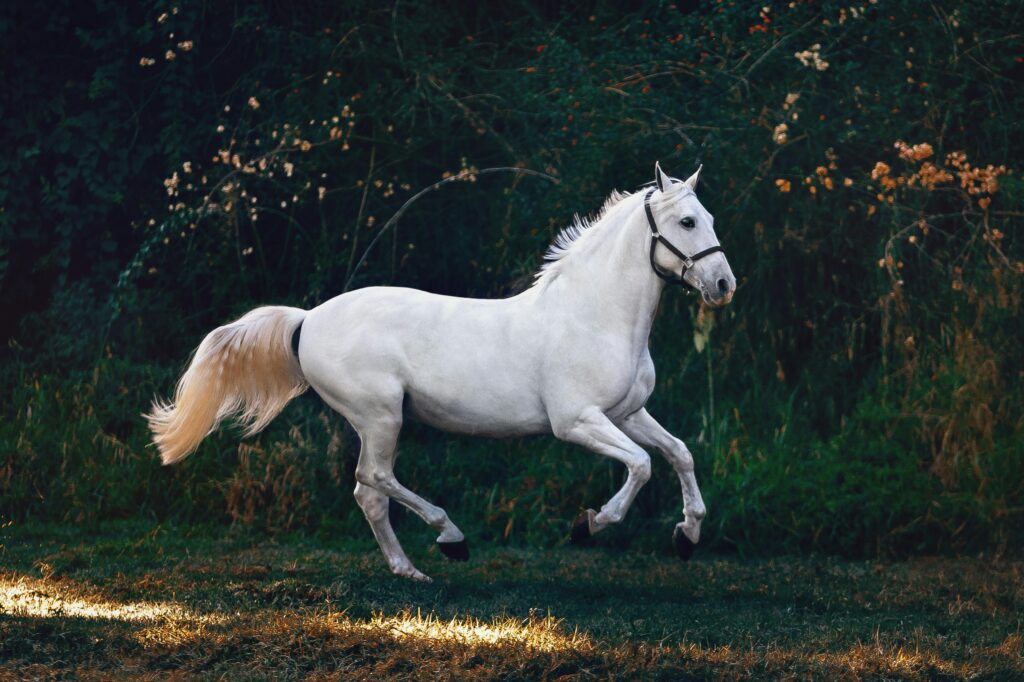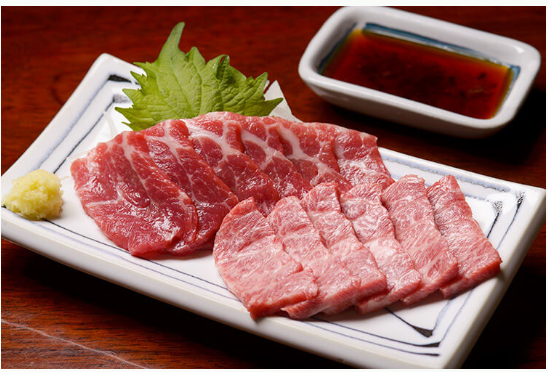As a devoted Muslim, you always ensure your eating habits align with the rules of Islam. But here’s an interesting question that may boost your curiosity: Is Horse Meat Halal? This topic often sparks various opinions among people. So, let’s embark on an exciting journey together to explore what the Quran, Hadith, and scholars have to say about this intriguing subject.

Is Horse Meat Halal?
The question of whether horse meat is halal, meaning permissible for Muslims to eat, depends on Islamic dietary guidelines derived from the Quran and Hadith. According to many Islamic scholars, horse meat is generally considered halal.
However, In the Quran: “And [He created] the horses, mules, and donkeys for you to ride and [as] adornment. And He creates that which you do not know.” [Surah An-Nahl, 16:8]

Khalid ibn Walid (may Allah be pleased with him) narrated that the Messenger of Allah (peace be upon him) prohibited the consumption of horse meat, mule meat, and donkey meat. [Sunan Ibn Majah, Hadith: 3198]
The above narrations clearly indicate that the consumption of horse meat has been counted among the Haram (forbidden) meats by Prophet Muhammad (peace be upon him).
Logical Investigation
To guarantee that horses are used primarily for transportation and jihad, it is forbidden to consume horse meat. If horse meat is permitted to be consumed, this could encourage its widespread use and undermine the vital role that horses serve in these significant fields. As a result, the prohibition against consuming horse meat protects the horses’ as the horses can be used for transportation at that time and also used on battlefields.
Scholars opinions
Imam Ahmad Raza Khan Barelvi states: “According to scholars, it is Halal, but Imam Malik views it as Makruh. The fatwa was issued considering Makruh Tanzihi (disliked), not Haram. Prominent scholars lean towards prohibition, supported by textual evidence. However, Kifayat al-Bayahqi contradicts this, going against explicit narrations and the majority of scholars’ fatwa.” [Fatawa Razawiyyah, Vol. 20, p. 314].
Mufti Amjad Ali Azmi, citing Al-Mukhtasar, states: “Eating domestic donkeys and mules is Haram, but eating wild donkeys called ‘gurkhur’ is Halal. Regarding horses, there are various narrations, and Imam Malik views it as disliked. Horse meat is considered an instrument of jihad, and consuming it diminishes the spirit of jihad. Therefore, it should not be consumed.” [Bahar-e-Shariat, Part 15, p. 326].

Opinions of other prominent scholars, such as Imam Malik, Imam Awzai, and Imam Mujahid, also hold that eating horse meat is Makruh (disliked). So, in summary, we can say that eating horse meat is considered Makruh and not supported by the Quran and the Messenger of Allah (peace be upon him).
Conclusion
The debate about whether horse meat is halal or haram in Islam is rooted in different interpretations of religious texts. The Quran mentions horses primarily for riding and adornment (Surah An-Nahl, 16:8), while a hadith narrated by Khalid ibn Walid suggests that the Prophet Muhammad (peace be upon him) prohibited eating horse meat, along with mule and donkey meat (Sunan Ibn Majah, Hadith: 3198).
The logical reasoning behind this prohibition includes the practical need for horses in transportation and battlefields during the Prophet’s time. Consuming horse meat might have reduced their availability for these critical roles.
Islamic scholars have varied opinions on this matter. Imam Ahmad Raza Khan Barelvi notes that while some scholars consider horse meat halal, it is generally viewed as makruh (disliked) rather than haram (forbidden). Mufti Amjad Ali Azmi supports this by citing various narrations and scholars who regard horse meat as makruh due to its importance in jihad.
In conclusion, while some Islamic scholars consider horse meat permissible, the overall view is that it is makruh due to the Prophet’s hadith and the practical role of horses in Islamic history. Therefore, it is generally advised to avoid eating horse meat, respecting its historical and religious significance.
FAQs
Is horse meat allowed in Islam?
While some Islamic scholars consider horse meat permissible, the overall view is that it is makruh due to the Prophet’s hadith and the practical role of horses in Islamic history. Therefore, it is generally advised to avoid eating horse meat, respecting its historical and religious significance.
Are horses allowed in Islam?
Yes, of course, horses are allowed in Islam.
Horses are given a place of high esteem in Islamic Middle Eastern cultures. Islam commands that a horse must be treated in the same way as one would treat one’s children.
Is milk of horse halal in Islam?
Yes, horse milk is halal is Islam.
